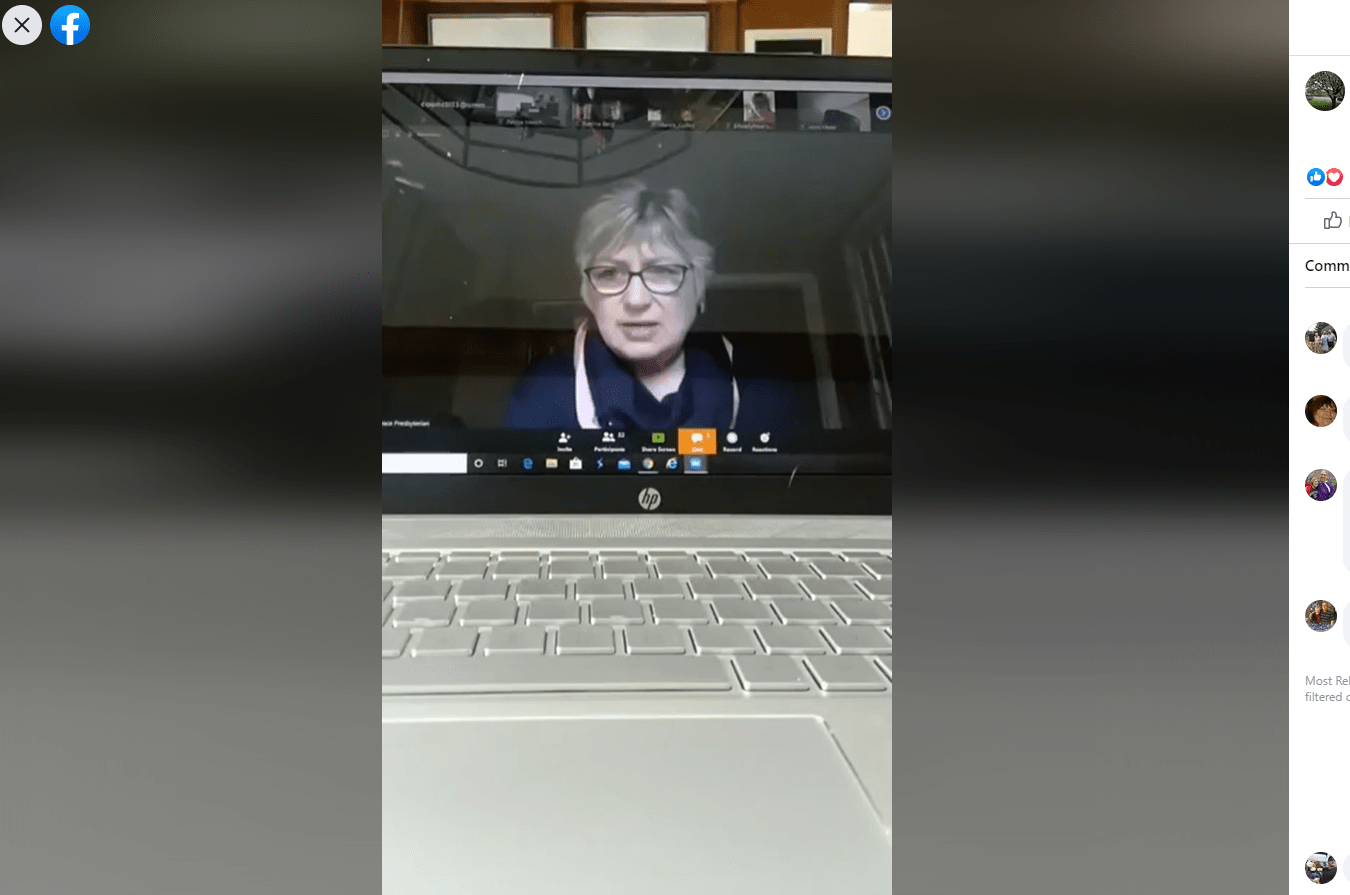St. Louis Park church uses 'buddy system' so older members may worship

Go Deeper.
Create an account or log in to save stories.
Like this?
Thanks for liking this story! We have added it to a list of your favorite stories.
Charlie Koehler has attended Peace Presbyterian Church in St. Louis Park since it was founded in 1957.
“To me, it’s sort of a home,” the 93-year-old said.
Koehler hasn't traveled farther than his yard in about a month. His children, in their 60s and 70s, call daily to check on him.
At a time when churches are using the internet to keep providing worship services, some still are not able to participate. Koehler doesn't have a computer or smartphone.
Turn Up Your Support
MPR News helps you turn down the noise and build shared understanding. Turn up your support for this public resource and keep trusted journalism accessible to all.
A couple of weeks ago, he got a call from his pastor’s husband that allowed him to hear the service. He said listening through a speaker phone “worked quite well.”
Many older members of the around 80-person congregation at Peace Presbyterian receive worship through an older technology: the telephone.
“It’s nothing like being in church there, but if you can’t do it, like now, I guess it’s got to be second best,” Koehler said.
As COVID-19 has pushed services away from in-person and onto the internet, churches are trying to find ways to connect to their membership. Peace Presbyterian decided to pair people up.
“It’s kind of a buddy system,” said the Rev. Heidi Vardeman. “We try to identify those who don’t have internet access and ask them if they would like to be connected through their telephone.”
In mid-March, the congregation held its last in-person service. They did so very carefully, seating people far apart, bringing them into the chapel one at a time and not passing communal items.
While they weighed the health risks of the coronavirus and thought about moving online, one of the doctors in the congregation stepped in with another worry — isolation.
“We’re an older congregation. I'm really worried about the mental health and the impact of that,’ said Dr. Robin Councilman, a family physician at a clinic in north Minneapolis. “We want to keep our congregation alive, that’s really important, but at the same time we have to address the depression and anxiety that’s going to come, particularly in our older congregation members.”
The first Sunday apart, the service was streamed using Zoom and Facebook.
“The first Sunday that we did it, I was broadcasting from the sanctuary, the internet connection was bad,” Vardeman said. She walked around with her laptop, searching for a better signal. The music was difficult to hear.
“The second Sunday we broadcast, we all broadcast from our homes. The Zoom technology allows you to spotlight different people and it has gone very smoothly since then,” she said. They also added that phone element, allowing more of the congregation to listen and worship together.
The new worship-cast includes sounds not typically heard in church: typing, dogs barking and the creaking of chairs.
In the days leading up to Palm Sunday, the start of Holy Week, Vardeman said they received the traditional palms, normally distributed during that service. This time, they inspired a special gift to members.
“Then we thought we could put in more than the palm,” Vardeman said. “‘Well, we just got new hymnals, why don’t we give them an old hymnal, the bible, the church directory, a newsletter.’”
They added grape juice boxes for communion and several weeks of paper copies of worship bulletins, and set up a no-touch, drive-up system for some members to come get the bags. They delivered the others to older members’ homes.
Councilman said they also asked older members to send cards or make phone calls to other church members — just to check in.
“If you’re home all day by yourself, you’re not interacting with anyone, you don’t have anything to do,” she said. “And so to have a mission, even if it’s just sending a couple of cards a day or calling a few people. I think it’s also good just to be in service to other people.”
Koehler said it has been a blessing to maintain these connections. Since he lost his wife Margreth about a year ago, the congregation has become even more important to him.
“Everyone’s sort of concerned for each other. And if you didn’t have this, you sort of drift away from it,” he said. “It’s quite a family, so I think it’s great to keep connected. You know there’s someone looking out for you.”


